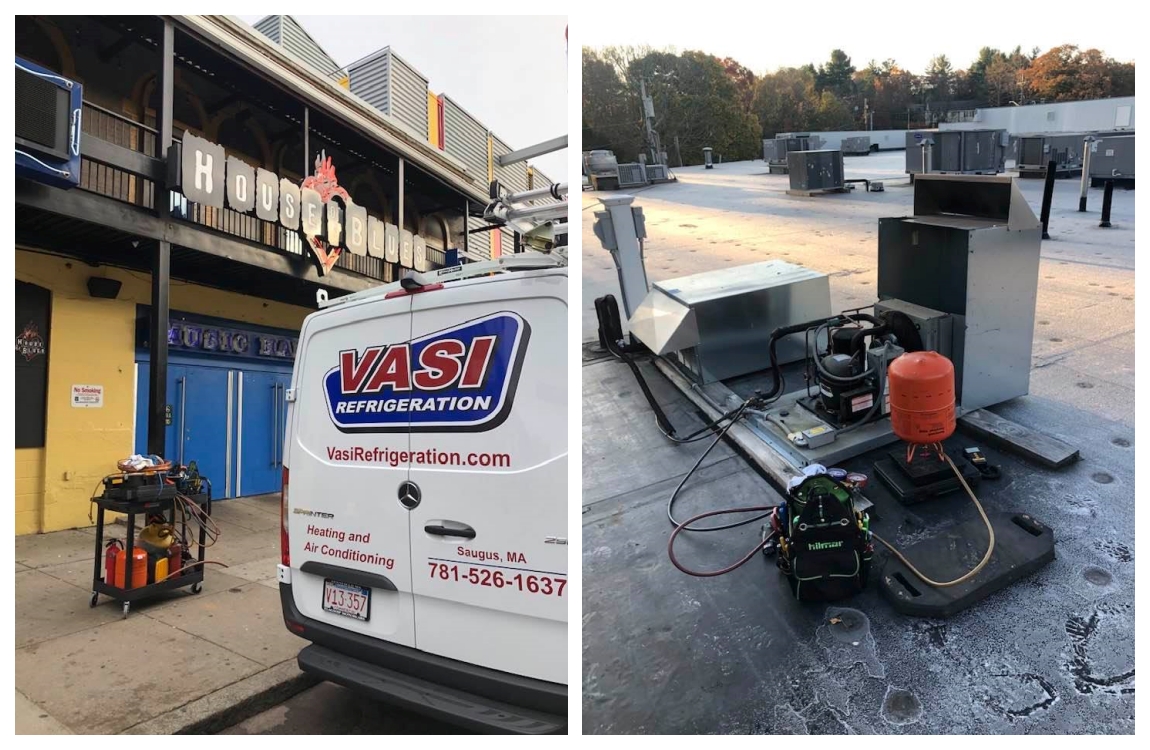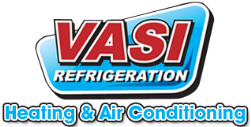The start of a new year is the ideal time to take a fresh approach to your home’s HVAC system. Whether you’re considering investing in a new system for your home or you want to get the most out of the one you have, the start of a new year is a great time to start making plans. From investing in a smart thermostat to upgrading your heating or cooling system, consider the following New Year’s resolutions for your HVAC system.
 Change Your Air Filter Regularly
Change Your Air Filter Regularly
One of the most important HVAC-related New Year’s resolutions you should make is also one of the easiest to do. Mark your calendar and make a point of changing your system’s air filter regularly. During the peak of summer or winter, when you run your HVAC system the most, plan to change the filter once a month. When the outdoor temperatures are milder in the spring and summer, plan to replace the filter every three months.
Setting a schedule to replace your air filter might seem minor, but this replacement will have a big impact on your HVAC system throughout the year. Air filters prevent dust, dirt, and other airborne particles from entering the system, keeping it clean and preventing frequent breakdowns.
But clean air filters can do much more. They improve indoor air quality by removing harmful particles from your home’s air supply and increasing system operating efficiency by keeping airflow smooth. Air filters do these tasks best when you replace them on time or every one to three months.
Schedule Preventive Maintenance
Another smart way to keep your system running smoothly is to schedule preventive maintenance. At Vasi Refrigeration, we recommend annual HVAC maintenance for each major system. You’ll want to schedule a tuneup for your air conditioner or heat pump in the spring and another for your furnace in the fall. Try to fit in a maintenance session before you turn on the system for the season so that your HVAC system technicians can catch any performance issues before your family depends on the system for comfort.
During a preventive maintenance session, our technicians complete a long list of tasks, from checking fluid levels to lubricating moving parts and testing safety controls. We’ll also identify minor problems before they need major repairs or cause a complete breakdown.
Invest in a Smart Thermostat
If your HVAC system has kept your family comfortable for a decade or more, you might still rely on a manual thermostat. While these devices allow you to adjust the temperature and switch from heat to cooling, they’re missing the energy-efficient features that smart thermostats offer.
Upgrading to a smart thermostat comes with a manageable price tag and offers several valuable benefits that our team of technicians can demonstrate for you. With one of these devices, you can program your family’s heating and cooling schedule, which means your HVAC system will turn on only when necessary. When everyone is asleep or out of the house, a smart thermostat will dial back the temperature 8 to 10 degrees, which saves you up to $180 per year in utility costs.
Smart thermostats don’t stop there. Since they link to your home’s Wi-Fi network, you can connect to them from anywhere in the world and adjust the temperature or indoor air quality settings from afar. Some also detect when you’re on your way home and turn on the HVAC system to make your home comfortable. These devices also track your energy usage so that you can identify easy ways to make your household more environmentally friendly.
Improve Your Indoor Air Quality
Keeping your indoor air quality high is essential for your family’s health and your HVAC system’s efficient operation. Adopting a few healthy habits, such as keeping a regular cleaning schedule and distributing green plants throughout the house, will go a long way toward improving air quality in your home. If your indoor air quality is less than ideal or if you simply want to automate the process, we recommend investing in air quality components for your HVAC system.
We offer a range of items to meet every air quality need. To remove high levels of pet dander, pollen, and volatile organic compounds (VOCs) from the air, try an air purifier, some of which can also capture and eliminate viruses. To control unhealthy levels of humidity year-round, use a whole-house dehumidifier, which works seamlessly with your HVAC system. To resolve persistent low levels of moisture, install a humidifier, which boosts your family’s health and enhances the effects of your furnace during the winter.
Increase Ventilation
If you’ve taken steps to seal air leaks or insulate your attic and foundation, you’re already one step ahead of many homeowners. Tightening your home’s building envelope translates to savings on your household’s energy consumption, but you might find that this envelope tightening also limits the airflow in your home.
Fortunately, we have an easy solution for keeping your home’s air supply fresh and clean. Our energy-recovery ventilators work with your home’s HVAC system to pull in fresh air and flush out stale air on a continual cycle. With one of these devices, you’ll never have to worry about breathing in yesterday’s air again. Since energy-recovery ventilators precondition the incoming air, they also improve your HVAC system’s energy efficiency and have a minimal impact on your utility bill.
Add Zoning Systems
Many Boston homeowners struggle with keeping the temperature comfortable throughout the house. If your home has more than one level or you have family members with strong temperature-related preferences, you’ll find that keeping everyone comfortable is an especially tall order.
If this scenario sounds familiar, add zoning systems to your home. Our heating and cooling experts install dampers in your HVAC system’s ductwork and connect them to a series of electrical sensors. You can then program a different temperature for each zone, ensuring that the kitchen, family room, and bedrooms will always be perfectly comfortable. We’ll walk you through the smart thermostat options that give you the greatest or most streamlined control over your new zoning systems.
Upgrade Your HVAC System
If your HVAC system is reaching the end of its lifespan, which is generally 10 to 15 years for air conditioners and 15 to 20 years for furnaces, start thinking about an upgrade. While a new HVAC system is a big investment, it offers a range of benefits for your home and family.
When you start looking for a new HVAC system, ask our team about Energy Star–certified heating and cooling options. These systems offer superior energy efficiency and will help you lower your utility bill every month.
Our team can also introduce you to the latest HVAC tech innovations, such as variable-speed blowers. Available with both heating and cooling systems, these blowers operate at a low level for most of the day and run at a higher level only when necessary. This feature results in improved energy efficiency and better comfort for your family.
Plan Ahead
If you’ve made any New Year’s resolutions before, you know that creating a plan and sticking to that plan are the keys to success. When working with your HVAC system, planning ahead can be especially beneficial.
Scheduling preventive maintenance before the heating or cooling season starts lowers the chance that your HVAC system will have a major breakdown at the peak of summer or winter. Similarly, investing in a new furnace, air conditioner, or heat pump during the off-season can mean better prices, a more convenient installation schedule, and extra time to consider the best option for your family.
This year, resolve to stay one step ahead of your HVAC system, and you’ll benefit from comfort, budget, and peace of mind. Of course, if the unexpected happens or if you need emergency repairs, our experienced HVAC technicians are always a phone call away.
